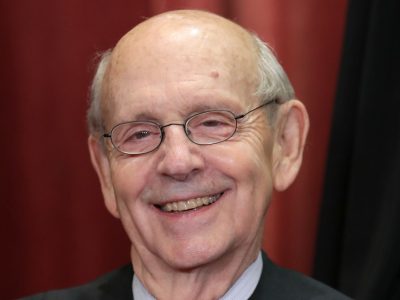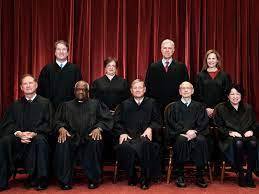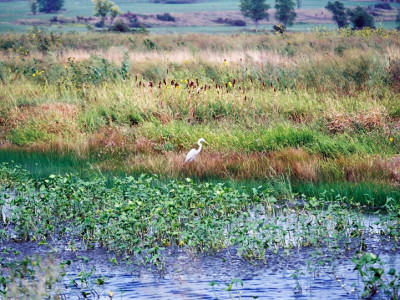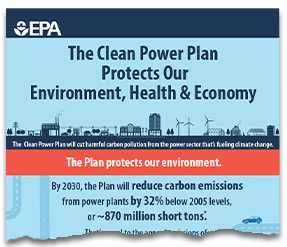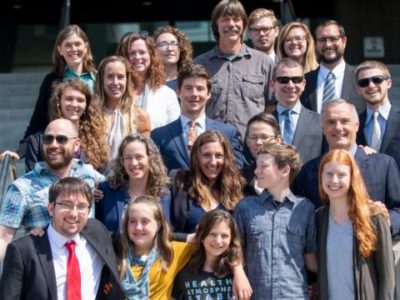U.S. Supreme Court
Which Front Runner Would Be Better for the Environment?
The three front runners have track records, but they’re not easy to interpret.
Currently, the press seems to view Judges Michelle Childs, Ketanji Brown Jackson, and Leondra Kruger as the front runners to replace Breyer. That may shift over the next month, but it seems worthwhile to give these three a closer look. They’ve all decided environmental cases while on the bench. I assume most readers don’t want …
Continue reading “Which Front Runner Would Be Better for the Environment?”
CONTINUE READINGWetlands, the Clean Water Act & the Supreme Court: the Sacketts Return to Washington
Justices Grant Review (Again) in the Sacketts’ Longstanding Wetlands Battle With the Government
This week the U.S. Supreme Court agreed to hear the case of Sackett v. USEPA, No. 21-454, an important appeal involving the scope of federal authority to regulate wetlands under the Clean Water Act. If the Sackett litigation sounds familiar, it should: the case has been pending for well over a decade, and this is …
CONTINUE READINGJustice Breyer’s Nuanced Voice in Environmental Law
In a thoughtful, undramatic way, Breyer has turned out to be a valuable supporter for environmental regulation.
Given Justice Breyer’s announced retirement, it seems like a good time to assess his contribution to environmental law. When Bill Clinton nominated him for the Supreme Court, there was a great deal of uneasiness among environmentalists about Justice Breyer. As an academic, he had sounded a cautious note about government regulation, calling for more deliberation …
Continue reading “Justice Breyer’s Nuanced Voice in Environmental Law”
CONTINUE READINGDefending EPA’s Authority to Fight Climate Change – at the Supreme Court
Sean Hecht and Ted Lamm co-author amicus brief on behalf of Clean Air Act expert Tom Jorling
This week, Sean Hecht and I filed an amicus brief at the Supreme Court in West Virginia v. EPA in defense of EPA’s authority to effectively regulate greenhouse gas emissions under the Clean Air Act. Our client is Tom Jorling, a former Senate staffer and EPA official who was directly involved in drafting the Act …
Continue reading “Defending EPA’s Authority to Fight Climate Change – at the Supreme Court”
CONTINUE READINGMore on How the Vaccine Mandate Cases May Impact Climate Policy
How much is the Court likely to prune back EPA’s powers?
In a Friday post, I sketched some thoughts about how the Supreme Court’s vaccine mandate rulings might impact EPA’s power to control carbon emissions. I think it’s worth unpacking both the Court’s opinions a little more and the issues at stake in a pending climate change case, West Virginia v. EPA. The Court ruled in …
Continue reading “More on How the Vaccine Mandate Cases May Impact Climate Policy”
CONTINUE READINGToday’s Vaccine Cases: Implications for Climate Change Regulation
Today’s ruling are (somewhat) good news in terms of West Virginia v. EPA?
Today, the Court’s conservative Justices split the difference in two cases involving vaccine mandates, striking down OSHA’s mandate but upholding a more limited mandate for healthcare workers. The cases also split the conservative Justices themselves, with three hardliners (Thomas, Alito, and Gorsuch) seeking a more activist ruling in the OSHA case and dissenting in the …
Continue reading “Today’s Vaccine Cases: Implications for Climate Change Regulation”
CONTINUE READINGThe Quagmire of Clean Water Act Jurisdiction
The scope of federal jurisdiction over water bodies and wetlands remains as murky as ever.
The Biden Administration announced on Monday that it would not meet a February target date to issue a revised definition of federal jurisdiction under the Clean Water Act. It still plans to issue a revised definition later in the year. That sounds like a very technical issue. But it actually determines the extent to which …
Continue reading “The Quagmire of Clean Water Act Jurisdiction”
CONTINUE READING2022: The Year Ahead
Here are the five biggest things to watch for.
There will be a lot going on this year in the environmental sphere. I wanted to focus on a few big things to keep an eye on, rather than trying to give a long, comprehensive survey. Here are the five biggest things to watch for: Midterm elections. As of now, things are looking very good …
Continue reading “2022: The Year Ahead”
CONTINUE READINGIt’s Time to Repeal the Clean Power Plan
The CPP no longer serves any useful purpose, and keeping it on the books invites mischief by the Supreme Court.
The Clean Power Plan (CPP) was the Obama Administration’s signature climate effort. This 2015 regulation aimed to move state power grids away from coal and toward renewable energy. It immediately became ensnared in litigation and never went into effect. It’s now considered irrelevant for all practical purposes. Yet the Supreme Court is now set to …
Continue reading “It’s Time to Repeal the Clean Power Plan”
CONTINUE READINGFive Reasons Why Juliana Stumbled
The legal deck was stacked against the “children’s lawsuit.”
Juliana has been a valiant effort by a group of young people to force the federal government to plan for stringent reductions in U.S. carbon emissions. As I wrote in a previous post, several well-regarded foreign courts have upheld claims that are similar in concept to the Juliana case. The U.S. legal system, however, provided …
Continue reading “Five Reasons Why Juliana Stumbled”
CONTINUE READING






